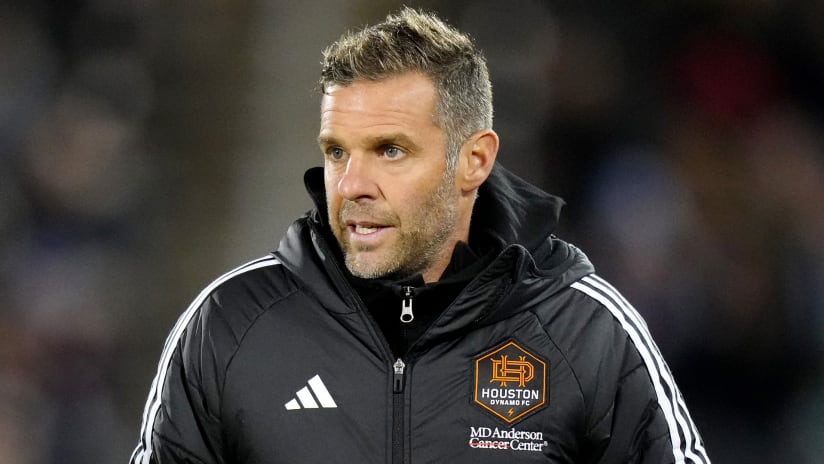Referee Kevin Stott doesn't remember much about his first game. He doesn't remember the exact date, just that it was in April, 1996. He doesn't remember the teams, only that the Dallas Burn was one of them. He doesn't remember the final score.
"All I remember is [Burn midfielder] Teddy Eck coming up to me and asking me how old I was because I looked pretty young back then," Stott said. "I remember getting through the game, and saying, 'That's the first one. Let's just see where it goes from there.' I made sure that I got the game ball, of course."
Now, Stott is eight years older and one of the most accomplished and respected U.S. referees. This Sunday at Giants Stadium, Stott will referee his 100th MLS match, this year's first installment of the rivalry between the New England Revolution and the MetroStars, becoming the first referee in the history of the league to run the center in a century of matches.
From his vantage point at the middle of the field, Stott has seen nearly a decade of MLS soccer and has watched the league's product evolve into the game it is today. Accordingly, he has grown as a referee and refined his own "game."
"I'm able to read the game much better, in terms of style of play and how individual players play their game, as well," he said. "The game overall has changed because the teams have become more united in the fact that there's more parity throughout the league. Each game now is played at a more competitive level."
Stott described the evolution of MLS officiating as a path out of relative chaos and toward the order and accountability we see today.
He said that in the first few years of the league, he'd get his orders from the U.S. Soccer Federation, show up for a game, and go home after hearing minimal feedback from an assessor. Communication between games was scarce.
"Now, we have weekly conference calls, and we're able to discuss the matches. We have more contact and input from the league and the federation," he said. "Back then, in the first couple of years, we would have an assessor at the game who just talked to us for a few minutes after the match, and now we actually have coaches or mentors who actually talk to us in detail after each of our games.
"We now are reviewing videotapes much more often, and we're actually analyzing our games more in-depth than we used to, just to improve our own personal performance."
Even the fans have taken part in the advancement of MLS officiating. According to Stott, while the fans "would just complain about anything" in the first few years of the league, they now know the game better and are more accurate and consistent in their criticism.
While he knows he has improved a great deal, Stott continues to study the game and the way MLS teams play it. On weekends when he doesn't work, he watches matches on TV and pays close attention to the way the referees handle players, looking for clues of how to handle different situations and players.
"The more prepared you are going into the match, the better you feel about the match before it even starts," he said.
"After 100 games, I'm still learning every single weekend because we have new players coming in and each team has a different makeup. For example, D.C. United, to me, is a whole new team this year, just because of the players they have. It's a constant learning process year-in and year-out, which makes it exciting because it's never the same."
Stott has been a finalist for MLS Referee of the Year honors for each of the last four years, and in 2001 he was the referee for MLS Cup. In addition, as a referee on the FIFA international list (which he has been on since 1995), he has his eye on officiating in CONCACAF World Cup qualifying and then hopefully the 2006 World Cup in Germany.
This story was not subject to the approval of Major League Soccer or its clubs.











